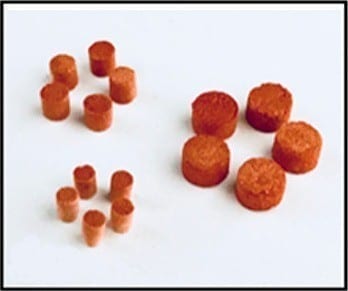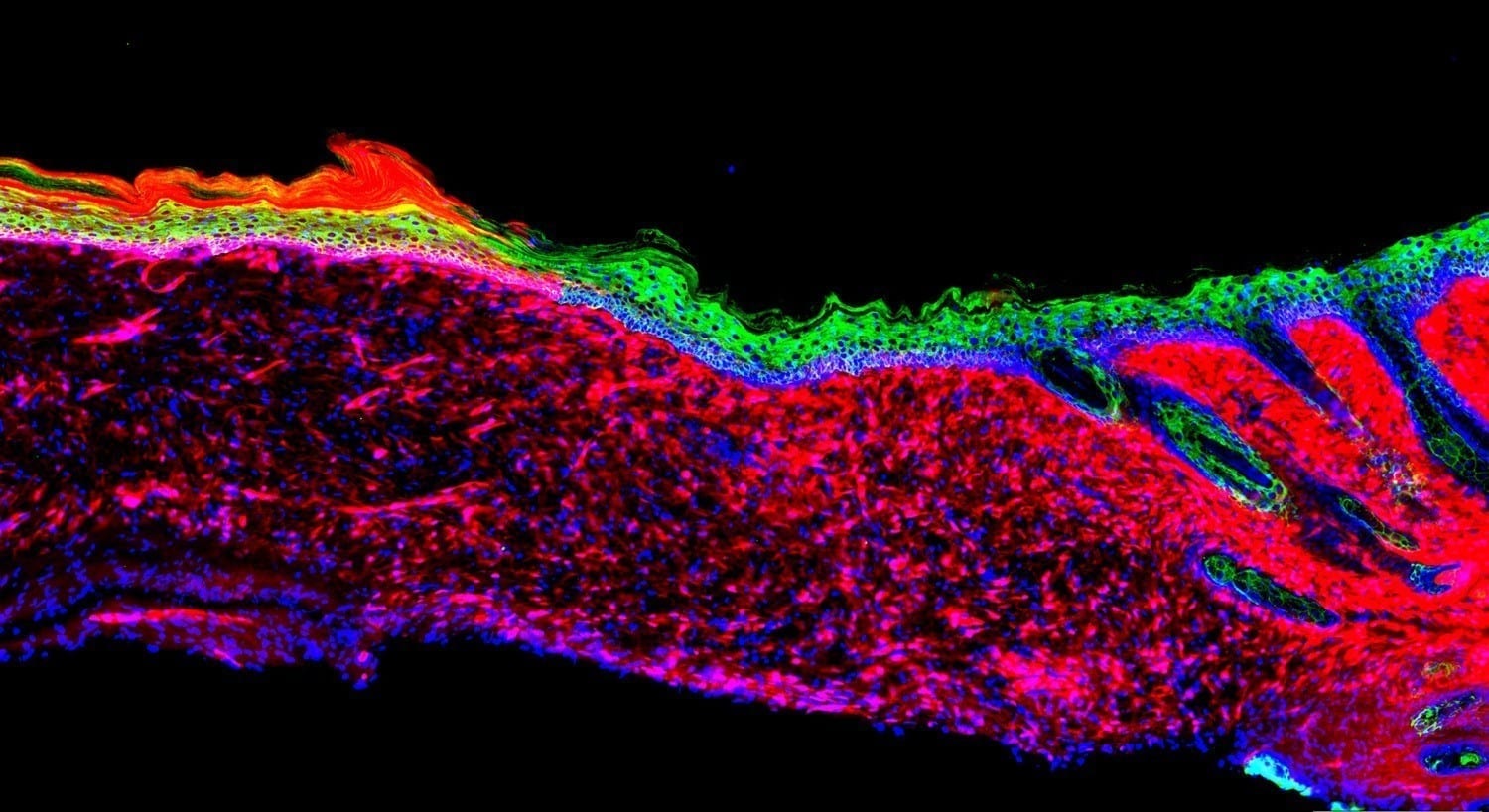
Credit: American Chemical Society
Using tiny micromotors to diagnose and treat disease in the human body could soon be a reality.
But keeping these devices intact as they travel through the body remains a hurdle. Now in a study appearing in ACS Nano, scientists report that they have found a way to encapsulate micromotors into pills. The pill’s coating protects the devices as they traverse the digestive system prior to releasing their drug cargo.
About the width of a human hair, micromotors are self-propelled microscopic robots designed to perform a host of biomedical tasks. In previous research, Joseph Wang, Liangfang Zhang and colleagues used micromotors coated with an antibiotic to treat ulcers in laboratory mice. They found that this approach produced better results than just taking the drugs by themselves. However, the researchers noted that body fluids, such as gastric acid and intestinal fluids, can compromise the effectiveness of micromotors and trigger early release of their payloads. In addition, when taken orally in fluid, some of the micromotors can get trapped in the esophagus. To overcome these issues, Wang and Zhang sought to develop a way to protect and carry these devices into the stomach without compromising their mobility or effectiveness.
The researchers created a pill composed of a pair of sugars — lactose and maltose — that encapsulated tens of thousands of micromotors made of a magnesium/titanium dioxide core loaded with a fluorescent dye cargo. These sugars were chosen because they are easy to mold into tablet, can disintegrate when needed and are nontoxic. When given to laboratory mice, these pills improved the release and retention of the micromotors in the stomach compared to those encapsulated in silica-based tablets or in a liquid solution. The researchers concluded that encapsulating micromotors in traditional pill form improves their ability to deliver medicines to specific targets without diminishing their mobility or performance.
Learn more: A pill for delivering biomedical micromotors
The Latest on: Micromotors
[google_news title=”” keyword=”micromotors” num_posts=”10″ blurb_length=”0″ show_thumb=”left”]
via Google News
The Latest on: Micromotors
- Stellar Blade: How To Complete Reboot!on April 26, 2024 at 5:20 am
Upon reaching the Wasteland in Stellar Blade, Eve won't be able to activate any camps; here's how to get them power.
- Johnson Electricon April 21, 2024 at 5:00 pm
Johnson Electric designs, manufactures and markets micromotors. The company's micromotors are used in consumer and business product applications including automobile components, home appliances ...
- Light-activated propulsion spins bacteria-shredding micromotorson April 18, 2024 at 3:13 am
The four spikes on a new nanocrystal developed in Spain spin up under light and move through liquid, blasting any bacteria unfortunate to be in their path. The development could spell trouble for ...
- Silver-based micromotors that eliminate bacteria moving freely in aqueous mediaon April 17, 2024 at 1:05 am
Silver salts are the basis of microscopic crystals or micromotors constructed by researchers from the Institute of Chemical Research of Catalonia (ICIQ-CERCA) in Tarragona, in collaboration with ...
- Silver-based micromotors that eliminate bacteria can move freely in aqueous mediaon April 17, 2024 at 1:00 am
Researchers at ICIQ in Tarragona have developed a simple technique to produce microscopic crystals that activate in the presence of light, releasing silver ions with antimicrobial activity.
- Silver-based micromotors eliminate bacteria moving freely in aqueous mediaon April 16, 2024 at 5:01 pm
Silver salts are the basis of microscopic crystals or micromotors constructed by researchers from the Institute of Chemical Research of Catalonia (ICIQ-CERCA) in Tarragona, in collaboration with the ...
- Micromotors Treat Their First Bacterial Infection (VIDEO)on June 3, 2022 at 10:50 pm
Nanoengineers at the University of California San Diego have demonstrated for the first time using micromotors to treat a bacterial infection in the stomach. These tiny vehicles, each about half ...
- Amazing STARGᐰTE With DHD And Infinity Mirror Wormholeon March 9, 2021 at 3:37 am
The seven Chevrons move along 3D printed rack-and-pinion gears, driven by geared micro-motors. The symbol ring is driven by a separate NEMA14 stepper motor. A Raspberry Pi with three piggy backed ...
via Bing News










